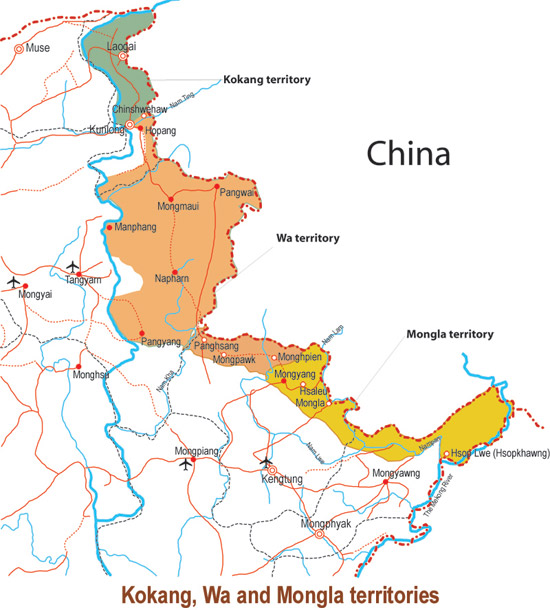Despite signing agreement last month to consider having elected representatives for townships under their control to speak for them, both the United Wa State Army (UWSA) and National Democratic Alliance Army (NDAA) say the first thing for them to deliberate is whether or not they should accept the 2008 constitution that had been ratified without their participation, according to sources from Sino-Burmese border.

Both had allowed junta referendum organizers to set up polling stations in their areas in May 2008 for the non-UWSA and non-NDAA populace to exercise their right. “Only a few turned up,” said an NDAA official. “And you can be sure what most of them thought about whatever the Burmese government did.”
Nevertheless, the regime announced later that 99.07% of the eligible voters had turned up and 92.4% of them had voted in favor of the charter.
Both Wa and Mongla, as the NDAA is commonly known, had declared they were against the constitution that had left several areas under their control out of their jurisdiction:
- Mongpawk, under Wa control, is in Mongyang township
- Hsaleu, under Mongla control, is also in Mongyang township
- Nampan, under Mongla control, is in Mongyawng township
How about pushing for legislation after their people have been represented in the union parliament? “No, no, that’s impossible,” replied a Wa official. “We will be a very small, negligible minority there while the Burmese military and its party are the absolute majority. How can you hope to get their approval for anything that is against what they had already decided?”
He however admits it will be an uphill battle. “We have never won a battle of wits against them,” he said. “We hope our luck changes this time with the help of our friends.”
Without Mongpawk and Hsaleu, Wa and Mongla will become isolated from each other. Likewise, without Nampan, Mongla will be cut off from access to the Mekong, the outlet to the countries downstream. Both had demanded, so far unsuccessfully, that all the three localities remain under their sway.



